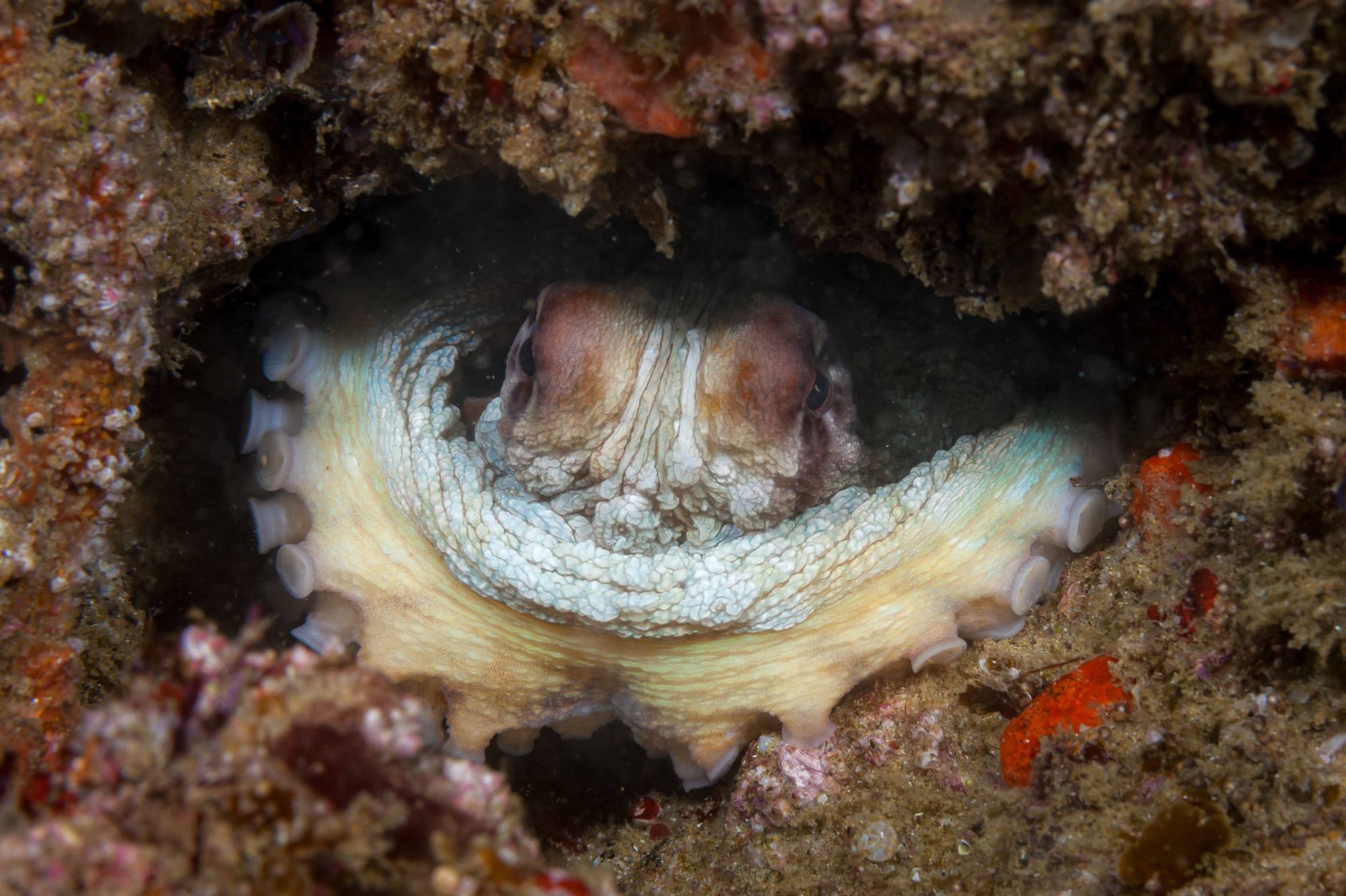Story
Marine heatwaves and octopus outbreaks
13 August 2025
This week, PML’s Professor Tim Smyth spoke to Anna Foster on BBC Radio 4 about the increase of marine heatwaves observed in the western English Channel, and the octopus bloom not observed in these waters for around 75 years.

Image caption: A Common Octopus (Octopus vulgaris), pictured off the Welsh coast, UK. Common Octopus are highly intelligent, active predators, and enjoy a varied diet of crustaceans – such as crabs, lobsters, and shrimp – fish, worms, and sometimes even other octopuses.
Read the transcript below or listen online (available for 29 days at the time of writing) on the BBC Sounds website from 01:23:52 >>
Anna Foster: “The seas around the U. K. are at their warmest since records started being kept in 43 years*, and those rising temperatures are having an impact on marine wildlife and on the UK’s fishing communities as well, and our coastal waters are such a huge part of the economy, the culture, the landscape of the UK. So we’re going to spend the next couple of weeks on the program really focusing on them and we’ll start with those temperatures and how things might continue to change. Professor Tim Smyth is Head of Science for Marine Processes and Observations at Plymouth Marine Laboratory. It runs one of the longest running sea monitoring stations in the world. Tell us a little bit more about these temperatures, because it’s a gradual rise, but we’re already seeing the impact, aren’t we?”
Prof Tim Smyth: “Well, yes, indeed I mean in your opening there, Anna. You mentioned it’s the longest or the warmest that it’s been in the last 43 years*, but actually we maintain here in Plymouth, some of the longest marine time series in the world, going back to 1902, and this has been, sort of unprecedented in the 120-year cycle, what we’ve basically been seeing is that we’ve had what we term marine heatwave conditions almost continuously since spring 2023. So what does that actually mean? It means that the temperatures recorded on any given day are in the top 10% of temperatures ever recorded. So it’s actually quite astonishing it really is, and it’s something that, as you say, has such a big impact not just on the whole marine ecosystem, but then ultimately on fishing communities around the UK.”
Anna Foster: “The ripple effect is huge.”
Prof Tim Smyth: “Yes, indeed, I mean one thing that we’re seeing off the coast of Devon and Cornwall at the moment, is an octopus, an octopus bloom or if, if you probably wanted to call it something else, probably an octopus outbreak. Now we know from the long term scientific work that’s been ongoing in the laboratories of Plymouth since really the later the latter part of the 19th century. We know that this has happened before. We know that we’ve had octopus outbreaks around about 1899-1900; 1933 and again in 1950, so this is not something that we’ve seen, probably for about 75 years. But we do know that it’s not unprecedented to have octopus in large numbers off our coasts. Indeed, when it was, it was talked about in in 1899-1900 in the scientific literature they referred to it as a plague of the devil fish because the ways that they predated on the crab fishery, for instance, it is absolutely fascinating.”
Anna Foster: “Professor, thank you for telling us a bit more about it. Professor Tim Smyth from the Plymouth Marine Laboratory.”
